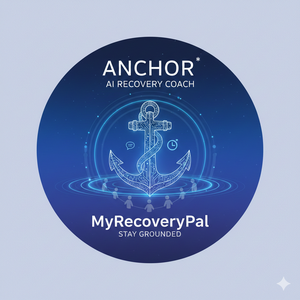
I still remember walking into my first recovery meeting — coffee in hand, heart pounding — not because I believed I had a problem, but because I wanted to prove to everyone that I didn’t. I thought, “I’ll attend a few meetings, show my friends and family I can control my drinking, get back on their good side, and carry on as if nothing happened.” The idea of never having another drink? That never even crossed my mind.
It didn’t take long to realize that magic control simply wasn’t possible — and that “just a few meetings” was the easy part. Once I surrendered to the reality that my plan had failed, the real work began. In the years since, I’ve learned lessons I wish I’d known on day one. Here are the top five:
1. Recovery Is Not a One-Way Street
What I Thought: Once I put down the bottle, every day would get progressively better.
What Actually Happened: I hit my first “pink cloud” around week two — everything felt rosy. Then around week four, reality (and cravings) came crashing back. I oscillated between hope and despair, thinking I was failing whenever I felt a twinge of doubt.
Why It Matters: Recovery isn’t a straight upward climb; it’s more like a winding trail with switchbacks. You’ll celebrate milestones — 30, 60, 90 days — and you’ll also face setbacks, hard days, and maybe even a slip (I did).
How to Navigate It:
- Keep a Journal: Note your highs and lows. Seeing them on paper helps you realize that dips don’t mean derailment — they’re just part of the process.
- Build a “Feel-Better” Toolbox: List five quick pick-me-ups (a brisk walk, a funny podcast, texting a friend, a short yoga flow, or doodling). When the pink cloud fades, pull one out.
2. You’re Quitting More Than Just Drinking
What I Thought: All I was giving up was alcohol.
What Actually Happened: Without my daily glass in hand, I realized I’d been numbing everything — stress, boredom, anger, loneliness. Suddenly, I had to face a flood of feelings I didn’t know how to handle.
Why It Matters: Sobriety is as much about learning to live as it is about stopping a habit. If you don’t build new coping strategies, you’ll feel like you’ve traded one prison for another.
How to Fill the Void:
- Learn an Emotional Check-In: Twice a day, pause and ask yourself, “What am I feeling?” Name it — “frustration,” “sadness,” “restlessness.” Naming diffuses the emotion’s power.
- Find Healthy Substitutes: I swapped happy-hour beers for evening walks, and crying jags at the bar for crying jags in my journal. Try meditation apps (Insight Timer, Calm) or join a beginners’ dance class.
3. Community Isn’t Optional — It’s Essential
What I Thought: I’d lean on my willpower and close friends — why did I need a “recovery crowd”?
What Actually Happened: My friends meant well, but they didn’t “get it.” They still went to bars and live-streamed their happy hours. I started feeling isolated — like I’d traded my social circle for a lonely bubble.
Why It Matters: Shared experience forges empathy and accountability. When you’re surrounded by people who’ve walked in your shoes, you’re far less likely to feel alone or judgmental of your stumbles.
How to Cultivate Your Tribe:
- Attend Multiple Types of Groups: If in-person meetings feel stale, check out online communities (Reddit’s r/stopdrinking, Smart Recovery forums) or faith-based groups if that resonates.
- Pair Up with a Buddy: Offer to meet a newcomer for coffee, and they might return the favor when you need a check-in. Buddy systems give you someone who understands cravings in real time.
4. Triggers Are Everywhere — Have a Game Plan
What I Thought: Triggers were obvious — bars, old drinking buddies, beer commercials. Just avoid them.
What Actually Happened: Triggers popped up when I least expected them — rainy days, seeing my favorite bar on a walk, or even certain songs. I found myself craving on autopilot, no bar in sight.
Why It Matters: If you wait for life to be trigger-free, you’ll wait forever. Instead, learn to face them with intention, not fear.
How to Stay Ready:
Identify Your Top Three Triggers: Spend some time listing situations or emotions that make you want to drink. Rank them in order of intensity.
Develop Specific Countermoves:
- Trigger: Feeling stressed at work. Response: Five minutes at your desk with a stress-ball, or a quick walk around the block.
- Trigger: Post-dinner boredom. Response: Pre-plan a hobby — knitting, reading a short story, or calling a friend.
Practice “What If?” Scenarios: Mentally rehearse. If you see a bar sign, you say out loud (or in your head), “I’m fine, thanks,” and keep walking. The more you practice, the easier it becomes in real life.
5. Self-Compassion Beats Perfectionism Every Time
What I Thought: If I messed up — missed a meeting, had a craving — it meant I was weak and should have “just said no.”
What Actually Happened: Guilt and shame piled on after every slip in motivation. I’d replay mistakes in my head and sometimes questioned whether I even deserved recovery.
Why It Matters: Shame is a relapse poison. It tells you that one misstep erases a hundred good choices — and it’s absolutely a lie.
How to Cultivate Kindness Toward Yourself:
- Use Gentle Language: Swap “I relapsed” for “I experienced a setback.” The wording you choose frames how you feel about yourself.
- Adopt a “Progress, Not Perfection” Mantra: Post it on your mirror: “Every sober minute counts.” Read it whenever you catch yourself spiraling.
- Celebrate Tiny Wins: If you go a whole day without thinking of drinking, that’s worthy of self-praise. Treat yourself — buy a fancy coffee, take a long bath, or watch that comedy special.
Putting It All Together
Sobriety isn’t just one decision; it’s a series of choices you make moment by moment. If I’d known these five lessons on day one, I’d have saved myself countless tears and headaches. But here’s the good news: you can start applying them right now, no matter how many sober days you’ve already banked.
- Embrace the Ups and Downs. Keep your journal close.
- Fill the Emotional Gap. Learn to name and navigate your feelings.
- Lean Into Community. Find your people.
- Anticipate Triggers. Plan your escape hatch.
- Be Your Own Ally. Celebrate yourself for trying.
Every action you take today — big or small — builds the foundation for a lifetime of clarity and joy. And if you stumble? Remember, it’s not the fall that defines you; it’s how you choose to rise.
Over to You
What’s one thing on this list that surprised you? Which strategy will you try first? Give me a clap orcomment below and let’s figure this out — together.

Comments (0)
Login to leave a comment.
No comments yet. Be the first to share your thoughts!